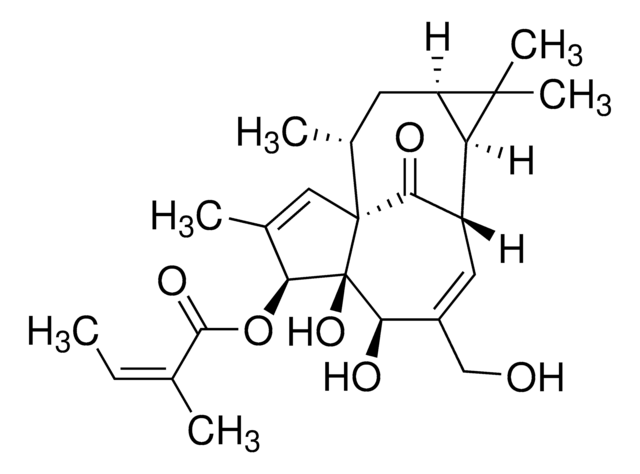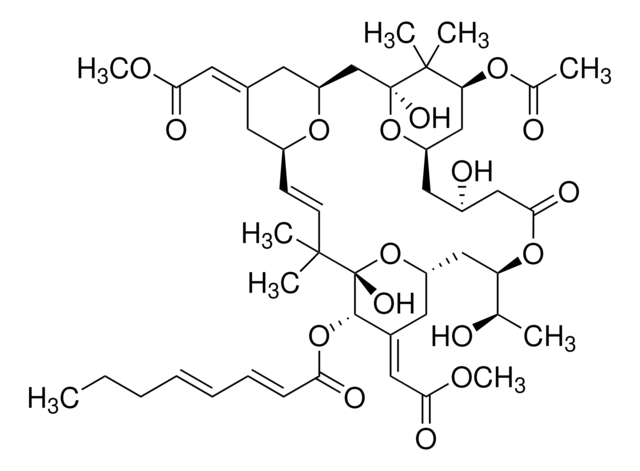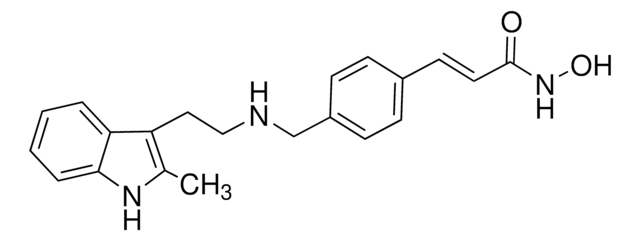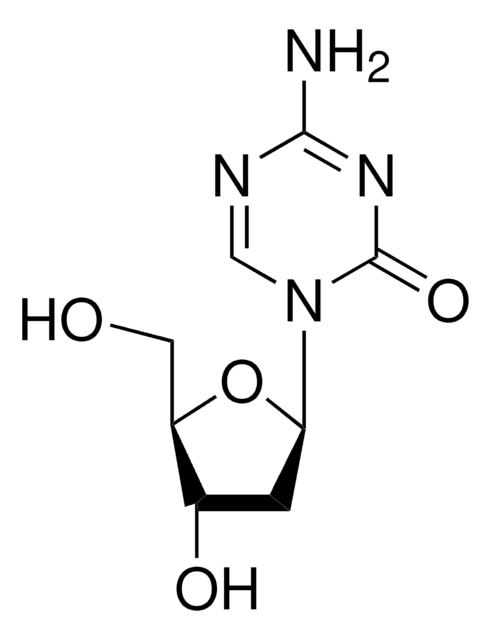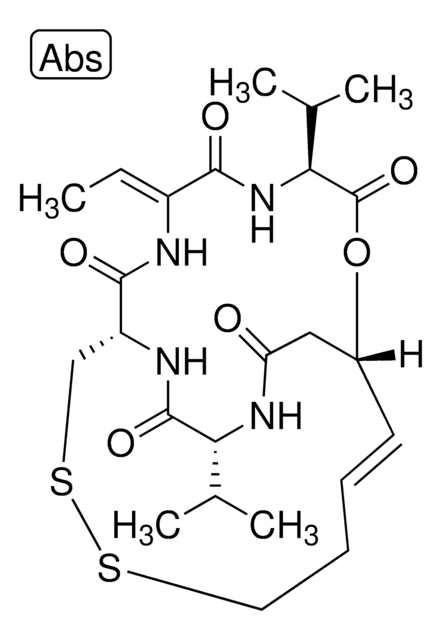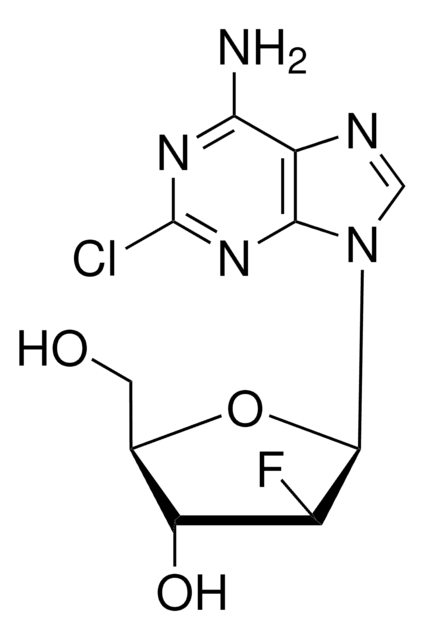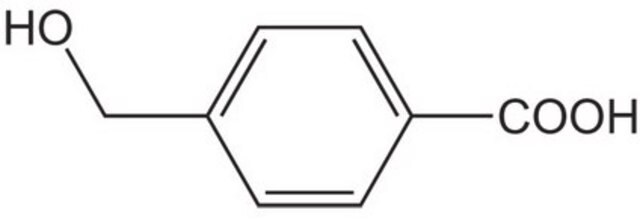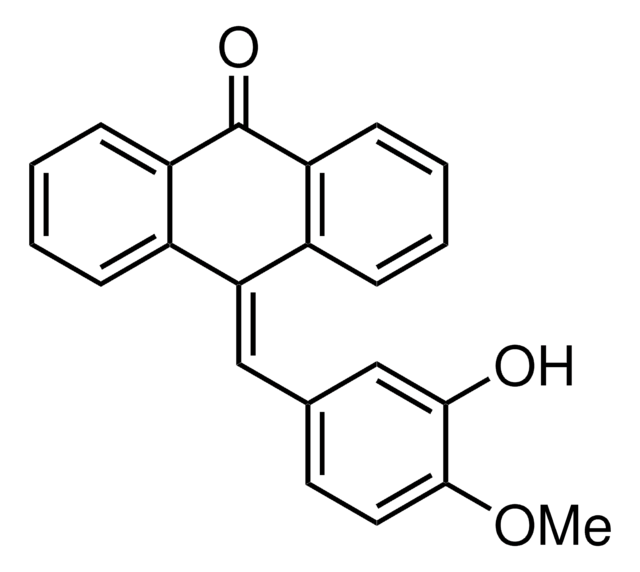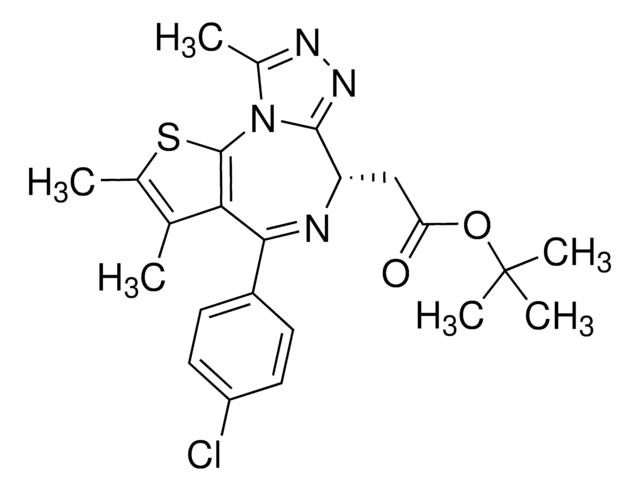P0077
Prostratin
≥98% (HPLC)
Sinónimos:
12-Deoxyphorbol-13-acetate, CCRIS 6292, NSC 623310
About This Item
Productos recomendados
Quality Level
assay
≥98% (HPLC)
form
powder
color
white
solubility
DMSO: 10 mg/mL, clear
storage temp.
−20°C
SMILES string
C[C@@H]1C[C@]2(OC(C)=O)[C@H]([C@@H]3C=C(CO)C[C@@]4(O)[C@@H](C=C(C)C4=O)[C@@]13O)C2(C)C
InChI
1S/C22H30O6/c1-11-6-16-20(26,18(11)25)9-14(10-23)7-15-17-19(4,5)21(17,28-13(3)24)8-12(2)22(15,16)27/h6-7,12,15-17,23,26-27H,8-10H2,1-5H3/t12-,15+,16-,17-,20-,21+,22-/m1/s1
InChI key
BOJKFRKNLSCGHY-HXGSDTCMSA-N
Application
Biochem/physiol Actions
Features and Benefits
Storage Class
11 - Combustible Solids
wgk_germany
WGK 3
flash_point_f
Not applicable
flash_point_c
Not applicable
ppe
Eyeshields, Gloves, type N95 (US)
Elija entre una de las versiones más recientes:
¿Ya tiene este producto?
Encuentre la documentación para los productos que ha comprado recientemente en la Biblioteca de documentos.
Los clientes también vieron
Artículos
Sigma-Aldrich offers many products related to PKC for your research needs.
Nuestro equipo de científicos tiene experiencia en todas las áreas de investigación: Ciencias de la vida, Ciencia de los materiales, Síntesis química, Cromatografía, Analítica y muchas otras.
Póngase en contacto con el Servicio técnico